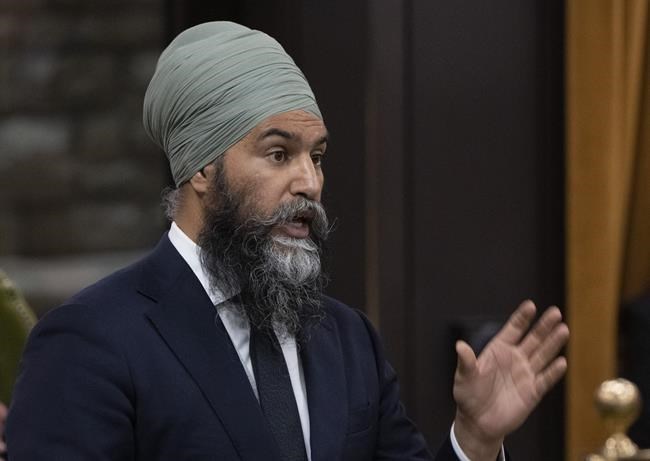OTTAWA — New Democrat Leader Jagmeet Singh says his party has faced resistance to including countries other than China in the terms of reference for a public inquiry on foreign interference.
House leaders from the main federal parties have been meeting over the summer in an attempt to set the terms and timeline for an inquiry and to appoint a potential leader.
The talks follow media reports earlier this year about allegations China tried to interfere in the last two federal elections, although parties agree it did not affect the outcome of the elections.
The negotiations also come on the heels of a cautionary warning from former special rapporteur David Johnston, who said the Liberal government had "serious shortcomings" in how it dealt with the flow of intelligence regarding bad foreign actors.
The NDP wants a thorough public inquiry to include a look at the actions of additional countries such as Russia, India and Iran.
"We have been pushing to say that a public inquiry should include all countries that are in a significant way trying to interfere in our democracy," Singh said Thursday in Halifax.
He said other parties have not been clear on whether the inquiry should look beyond China, despite community groups raising serious allegations about other countries.
"Some of them have resisted, and we've been saying they should include any major country involved in or engaged in any allegation of foreign interference."
Singh didn't say which parties resisted, and the scope of a possible public inquiry remains unclear.
However, in late May, Conservative and Bloc Québécois MPs voted in favour of an NDP motion calling for an inquiry to include a look at attempted interference not only by China but also Russia, Iran and India. The Liberals voted against that motion.
A Conservative party spokesperson claimed Thursday that terms of reference for a public inquiry had already been worked out, but provided no details. "After pressure from Conservatives, an agreement on the terms of reference for a public inquiry was reached by all parties," Sebastian Skamski said in a statement. "Names for a potential commissioner have also been shared."
The Liberals and Bloc didn't respond to requests for comment.
Last week, Intergovernmental Affairs Minister Dominic LeBlanc said the government would have more to more to reveal at the right moment.
In June, Prime Minister Justin Trudeau assigned LeBlanc to work with the parties on a public process to evaluate reforms needed to combat foreign interference.
Since the House of Commons adjourned for the summer, the government has repeatedly said an announcement was coming "soon" without elaborating on a timeline.
During the final week of the spring sitting of Parliament, both the Bloc and the NDP said they felt the negotiations were close to a conclusion.
Johnston, a former governor general appointed by the government to investigate foreign interference, had advised against a formal inquiry, saying it would have to take place almost entirely behind closed doors. That would defeat the primary purpose of public accountability through transparency, he said.
Shortly after the release of his May report, a majority of MPs passed a non-binding NDP motion calling on Johnston to step down due to perceived bias, with Conservative Leader Pierre Poilievre repeatedly accusing him of being too close to Trudeau to review his government's actions.
Johnston was friends with Pierre Elliott Trudeau, and went on ski trips with the Trudeau family when Justin was a child.
He ultimately resigned, citing a hyper-partisan atmosphere around his work.
Johnston had planned to hold five months of public hearings, starting in July, supported by experts in security intelligence, law and diaspora communities.
The Liberals have yet to announce another public process despite Johnston urging the government to act quickly to address the issues.
This report by The Canadian Press was first published Aug. 3, 2023.
Mickey Djuric, The Canadian Press



